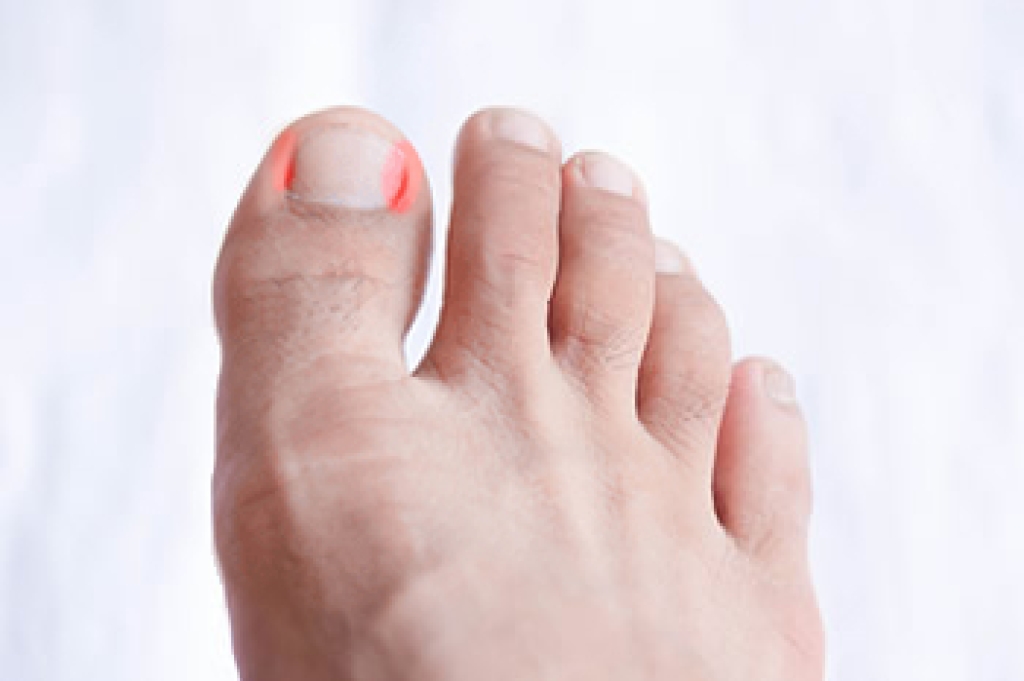
Recognizing an ingrown toenail early is important for timely treatment and prevention of complications. This condition occurs when the edge of a toenail grows into the surrounding skin, leading to inflammation, pain, and potential infection. Common causes of an ingrown toenail include improper nail trimming, wearing tight footwear, or genetic predisposition. Symptoms of an ingrown toenail can consist of redness, swelling, and tenderness along the nail border. In severe cases, pus or drainage may occur. Diagnosis typically involves a physical examination by a podiatrist. Treatment options include remedies like warm soaks and gentle nail trimming. A podiatrist also may offer treatment such as lifting the nail edge or surgical removal. If you have an ingrown toenail, it is suggested that you schedule an appointment with a podiatrist to prevent symptoms from worsening and obtain correct treatment.
Ingrown toenails can become painful if they are not treated properly. For more information about ingrown toenails, contact Zina Cappiello, DPM of Dr. Zina B. Cappiello DPM, LLC. Our podiatrist can provide the care you need to keep you pain-free and on your feet.
Ingrown Toenails
Ingrown toenails occur when a toenail grows sideways into the bed of the nail, causing pain, swelling, and possibly infection.
Causes
- Bacterial infections
- Improper nail cutting such as cutting it too short or not straight across
- Trauma to the toe, such as stubbing, which causes the nail to grow back irregularly
- Ill-fitting shoes that bunch the toes too close together
- Genetic predisposition
Prevention
Wearing proper fitting shoes and using proper cutting techniques will also help decrease your risk of developing ingrown toenails.
Treatment
Ingrown toenails are a very treatable foot condition. In minor cases, soaking the affected area in salt or antibacterial soaps will not only help with the ingrown nail itself, but also help prevent any infections from occurring. In more severe cases, surgery is an option. In either case, speaking to your podiatrist about this condition will help you get a better understanding of specific treatment options that are right for you.
If you have any questions, please feel free to contact our office located in Clifton, NJ . We offer the newest diagnostic and treatment technologies for all your foot care needs.
